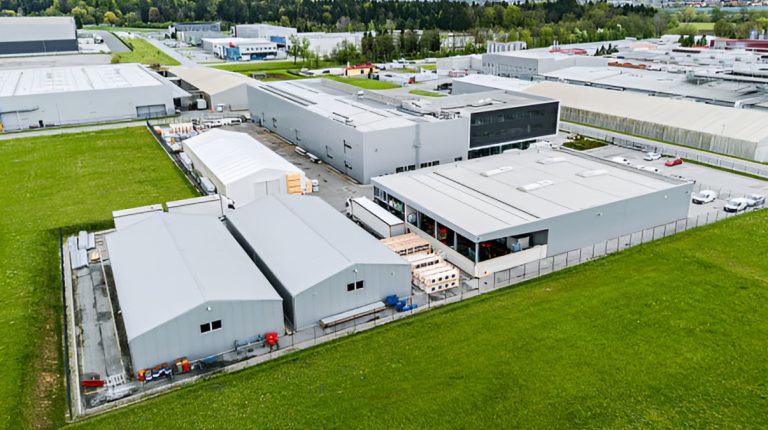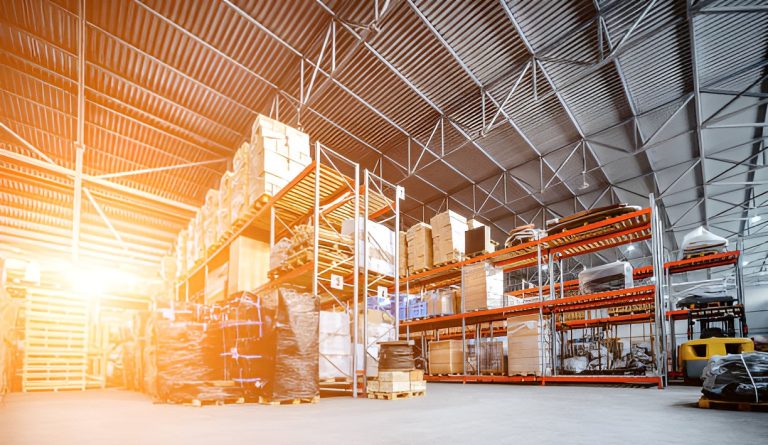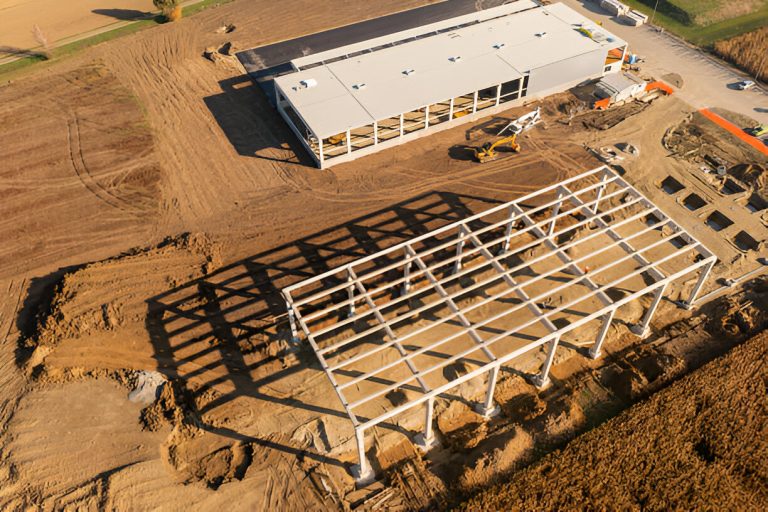Key Considerations for Hiring the Right Industrial Contractor
The foundation of a successful industrial warehouse isn’t about the building alone. Choosing a reliable and credible contractor is also very essential. Whether you’re setting up your first facility or expanding operations, getting the right contractor can determine whether your warehouse setup runs smoothly or becomes a costly headache.
A contractor who understands the nuances of industrial construction, from regulatory compliance to energy efficiency, is what today’s industrialists seek.
Here’s a practical guide to help you make the right decision.

1. Start with Experience in Industrial Projects
Not every builder can handle the complexity of an industrial warehouse. You need someone who understands logistics, loading docks, clear span structures, ventilation, and the unique requirements of warehouse setups.
Check their portfolio. Have they worked on warehouse setups in industrial parks before? Do they understand zoning norms and fire safety codes? A contractor with relevant experience will anticipate problems before they arise.
2. Look for Local Expertise
Contractors familiar with the local terrain, climate, and regulatory bodies offer a definite edge. They can help expedite approvals and design the warehouse to withstand regional weather conditions.
Also, if you’re considering land investment in upcoming industrial zones, having a local contractor on board can offer insights about surrounding infrastructure, road connectivity, and drainage, essential for functional industrial warehouse setups.
3. Evaluate Their Sustainability Credentials
Today’s industrialists aren’t just building for utility. They also focus on building for the future. A sustainable warehouse, therefore, is a necessity.
Ask potential contractors how they incorporate eco-friendly design elements. Do they suggest solar installations, rainwater harvesting, or energy-efficient materials? Sustainable warehouse features reduce long-term costs and contribute to greener business practices.

4. Check Compliance and Licensing
This might seem obvious, but many overlook it. Ensure the contractor holds valid construction licenses and insurance. This protects your investment in case of delays, worker injuries, or project disputes. Certifications from industry bodies add another layer of credibility.
5. Inspect Their Past Work and Talk to Clients
Don’t just rely on a glossy brochure. Visit some of their completed industrial warehouse sites. Look at build quality, layout, and finishing. Speak with their previous clients—ask about coordination and after-project support. The real feedback lies in how a contractor handles issues and delivers under pressure.
6. Prioritize Transparency and Timelines
In any business, time is money. Delays in warehouse setups can derail operations and cost you big. Make sure the contractor provides a realistic timeline, with clear milestones.
Also, insist on a transparent estimate. Understand how costs are broken down, what’s included, and where contingencies lie. Avoid those who underquote to win projects; they often cut corners.
7. Understand Their Post-Construction Support
Once the industrial warehouse is ready, the job isn’t over. You may need minor repairs, adjustments, or system optimizations after occupancy. Choose a contractor who offers reliable post-completion service. This ensures you’re not left stranded if issues crop up.

8. Align Vision with Scale
A good contractor builds with your growth in mind and industrialists often plan in phases. So, whether it’s for larger storage, automation systems, or smart warehouse tech, your contractor must think long-term.
If you’re developing multiple warehouse setups across different industrial parks, partner with someone who can scale with your business.
9. Factor in Future Land Value and Flexibility
Building on industrial plots is more than about infrastructure. It holds the potential for land appreciation. When you invest in land within a fast-developing park, like Magna Star Industrial Parks, the value of your property multiplies.
Choose a contractor who understands how to maximize plot usage without compromising expansion flexibility. Their design should leave room for fleet movement and future modifications.
Conclusion: Make Your Industrial Warehouse a Strategic Asset
Selecting the right contractor for your industrial warehouse is a strategic decision. It influences operational efficiency, cost, and even your business reputation.
For industrialists looking to scale smartly, a strong partnership with the right builder can make all the difference. You may invest in a sustainable warehouse, explore land investment in emerging corridors, or plan future-ready warehouse setups. Above all, choosing someone who builds with foresight should be one of the priorities.
Your business deserves nothing less. Invest in Magna Star Industrial Parks and build smart and long-term.


